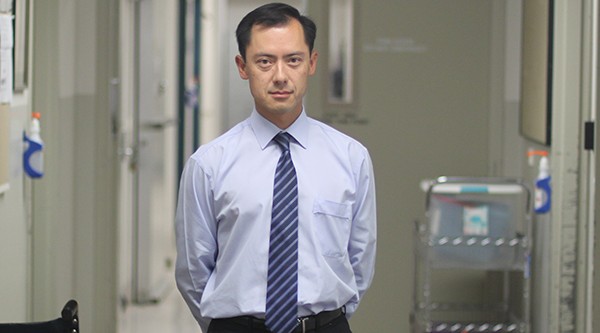Clinical trial for newly diagnosed AML or MDS with FLT3 mutation

ALLG clinical trial AMLM24: a study of new treatment options (gilteritinib versus Midostaurin) in combination with induction and consolidation therapy followed by one-year maintenance in patients with newly diagnosed acute myeloid leukemia (AML) or myelodysplastic syndromes with excess blasts-2 (MDS-EB2) with FLT3 mutations eligible for intensive chemotherapy.
Trial Lead: Assc. Professor Andrew Wei.
AMLM24 is a phase III, multicentre, open-label, randomized, study.
Acute myeloid leukaemia (AML) is a type of cancer in which the bone marrow produces immature white blood cells or myeloid type of blood-forming cells. Although some forms of AML respond well to treatment, some forms/types of AML have a tendency to relapse, and we know that the genetic sub-type of the cancer may make a difference in terms of relapse.
Approximately 30% of patients with newly-diagnosed AML have changes (e.g. mutations) in a gene called the fms like tyrosine kinase 3 (FLT3). The addition of therapies that target these FLT3 gene changes has been shown to improve survival in those patients with this sub-type of AML. Midostaurin is one therapy that has been used to treat AML of this type. This trial will investigate whether a more potent new FLT3-targeted therapy gilteritinib, will help improve survival for those with this type of AML when added to intensive chemotherapy when compared with midostaurin alone.
This trial is scheduled to start recruiting late 2020.
For more information on current clinical trials, visit the ALLG website.
Last updated on January 30th, 2023
Developed by the Leukaemia Foundation in consultation with people living with a blood cancer, Leukaemia Foundation support staff, haematology nursing staff and/or Australian clinical haematologists. This content is provided for information purposes only and we urge you to always seek advice from a registered health care professional for diagnosis, treatment and answers to your medical questions, including the suitability of a particular therapy, service, product or treatment in your circumstances. The Leukaemia Foundation shall not bear any liability for any person relying on the materials contained on this website.